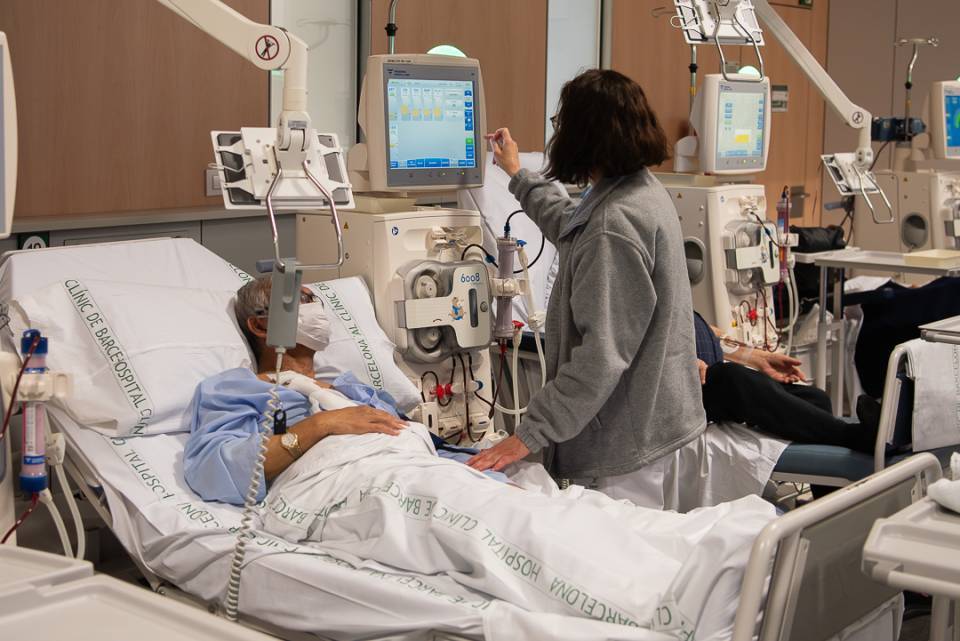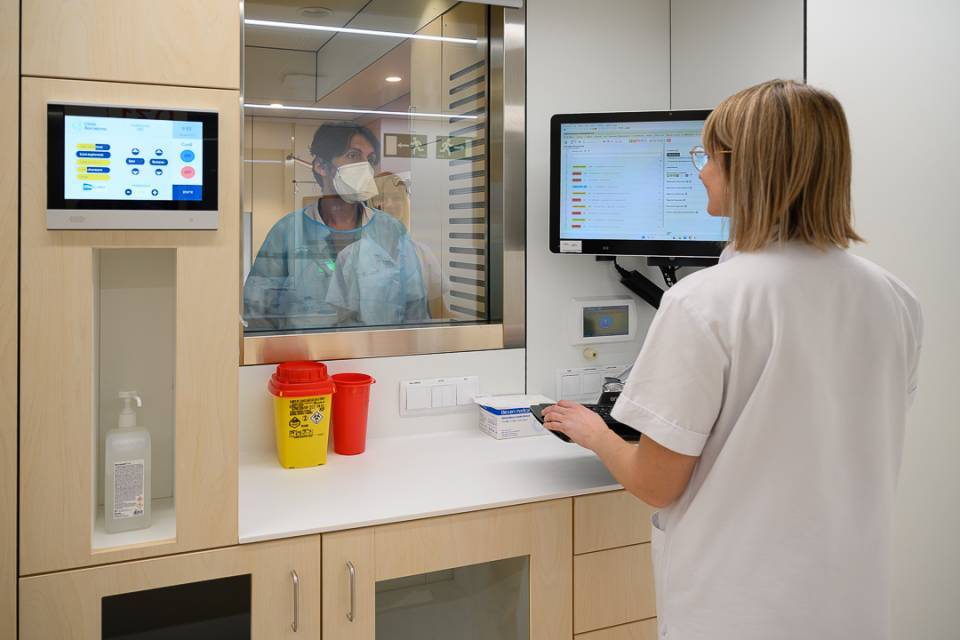This Tuesday, the Hospital Clínic Barcelona Perinatal Mental Health Unit presented the activity data from the last year, coinciding with the celebration of Maternal Mental Health Awareness Week in the first week of May. The presentation was made by Dr. Alba Roca, psychiatrist and head of the Perinatal Mental Health Unit.
The Hospital Perinatal Mental Health Unit has carried out over 1,800 initial consultations with mothers since 2018, the year of the unit’s creation and the opening of the Mother-Baby Day Hospital. More specifically, in the last year, 411 initial consultations have been recorded. This is the highest figure recorded by the unit and represents an increase of 37% compared with the previous year (301). Also worthy of note is the increase in consultations carried out jointly with Obstetrics, which have risen by almost 70% (from 150 to 253). Now, the commemoration of World Maternal Mental Health Day, celebrated on the first Wednesday of May, is being used to highlight these figures, as well as to remind us once again of the importance of caring for and treating the mental health of mothers and babies. The Perinatal Mental Health Unit is joining in the celebration with the organization of a series of activities, which will take place throughout the week, aimed at patients and professionals.
Over the course of these five years, over 1,800 initial consultations have been carried out, more than 1,000 visits with Obstetrics, 800 hospital interconsultations, and 650 outpatient group sessions. Over 700 mother-child bonding assessments have also been carried out and 1,000 infant neurodevelopmental assessments.
These figures reveal some of the most outstanding features of the unit, which is not only based on maternal mental health care, assessment and intervention, but also focuses on the mother-child relationship and infant neurodevelopment. In fact, the Mother-Baby Day Hospital continues to be the only unit of its kind in Catalonia and provides specialized, semi-intensive and comprehensive care to women suffering postpartum mental health problems, together with their babies. Now, 5 years after it opened, 235 dyads (mother-baby) have been cared for in the general programme and 244 women during pregnancy and in the postpartum period in the programmes created to treat bipolar disorder in pregnant women and the programme for mothers with Serious Mental Illness and high social vulnerability (including the intervention of the Directorate General for Child and Adolescent Care, DGAIA). These figures represent an increase in the number of women treated in recent years in these programmes, and reveal the need for the resources required to be able to care for them.
In recent years, Perinatal Mental Disorders (PMD) have been highlighted as an important public health problem, due to the impact they have on the health and quality of life of women and their children in the short and long term, revealing the urgent need to improve detection, prevention and specialized treatment. In fact, it is calculated that one in five women will suffer a mental disorder during pregnancy or the postpartum period, with perinatal depression being the most common complication (10%).
Other facts to remember…
-
75% of the women who have mental health symptoms during pregnancy or in the first year after giving birth are not diagnosed. Of the remaining 25%, only 10% receive treatment appropriate to their needs.
- Not all mothers have a positive bond with their baby, even if it was much-wanted.
- Untreated mental illnesses can affect the baby's development.
Dr. Alba Roca, psychiatrist and head of the Hospital Clínic Perinatal Mental Health Unit explains that, “we have discovered that women who come to our clinics have more serious symptoms, they are coming to us later and have greater social and family vulnerability. Sixty-five per cent of the women with postpartum depression fully recover within a year, but it is very important that they receive specialized follow-up with the appropriate treatment”.
These data highlight the urgent need to remember the importance of prioritizing the mental health of women and their babies. With this objective in mind, the Perinatal Mental Health Unit deals with the diagnosis, care and treatment of any disorder that reappears or that was previously present in pregnancy in outpatient or in-patient settings, closely linked to those specializing in psychiatry or psychology, but with strong links to other disciplines, mainly obstetrics.




